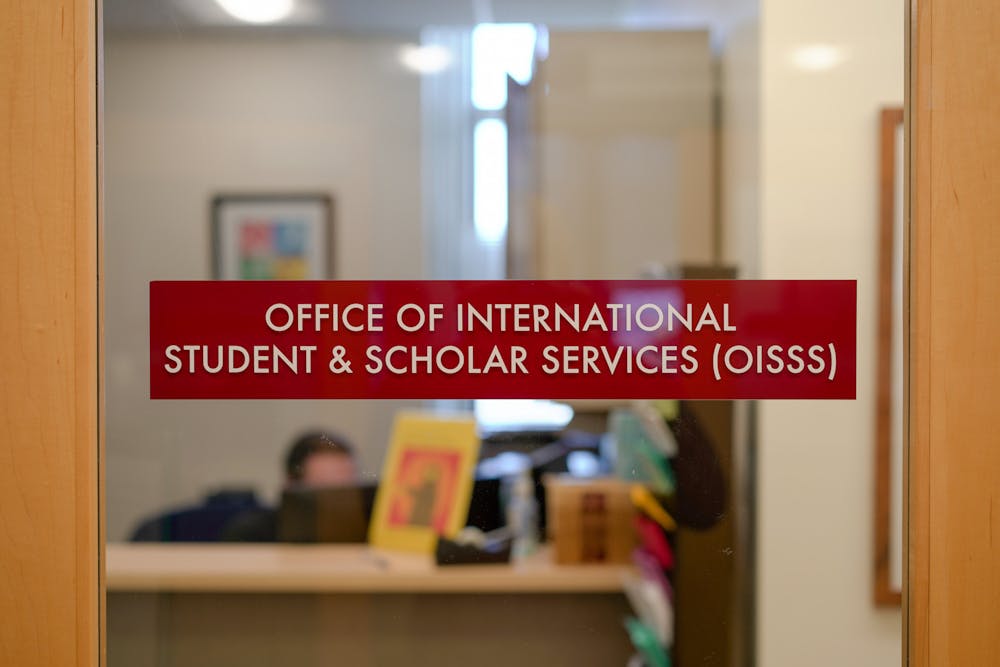As the spring semester presses on and University students scramble to secure summer and postgraduate opportunities, international students face particular logistical challenges in seeking employment in the U.S. “International students, especially those studying on F-1 student visas, have unique challenges when it comes to career exploration,” Chia-Ying Pan, associate dean of the College for international students, and Kelsey Trimm, the University’s international students program coordinator, wrote in an email to The Herald. These students often need to plan ahead, taking into account government regulations and how those regulations differ before and after graduation, they wrote.
“Students are strongly encouraged to connect early and often with the Office of International Student and Scholar Services and Global Brown resources designated for international student support,” Pan and Trimm wrote. Services offered by the programs include internship panels that highlight student experience, alumni conversations and a series on enrolling in graduate and professional school, according to Pan and Trimm.
Alp Koksal ’22, an international student from Istanbul, Turkey who hopes to attend medical school in the U.S., cited the Global Brown Center as his “most important resource.” Staff there are always available to help with student job searches, and the center hosts a number of helpful seminars and workshops, he said.
Koksal also mentioned the CareerLab as a helpful resource, but described the Global Brown Center as better equipped to meet his specific needs as an international student.
Some University students with F-1 status are eligible to remain in the U.S. for work through Curricular Practice Training work authorization — used for U.S.-based internships — and Optional Practical Training — used for one to three years of post-graduation, full-time work, depending on the student’s desired field and concentration.
“All employment in CPT and OPT must be directly related to the student’s declared concentration,” Kelsey Dennis, assistant director of international student services, wrote in an email to The Herald. “This is because CPT and OPT are work authorization benefits of the F-1 student visa and are meant to allow for practical training in the student’s area of study.”
Moreover, on-campus opportunities generally do not require work authorization — nor do programs funded by the University such as SPRINT UTRA or SPRINT LINK programs, Pan and Trimm wrote.
Nonetheless, Koksal expressed frustrations about some positions being effectively unavailable to international students. He explained that certain jobs, especially those in government, are more or less off-limits to international students because the positions handle confidential information.
“It’s very difficult to get jobs with the U.S. government — engineering positions at NASA, just for example,” Koksal added.
As an international student who has U.S. citizenship, Koksal also acknowledged that some opportunities are available to him and not to other international students holding visas, but only to a limited extent. Since international students are often at a disadvantage applying to U.S. medical schools, for example, Koksal said he will take two gap years before medical school to enrich his application. Yet he said he still believes he is at a disadvantage in seeking pre-application opportunities.
Meta Bountouraki ’22, an international student from Athens, Greece who will work in economic consulting in New York City following graduation, faced potential deportation if she did not find employment within 90 days of her graduation.
Bountouraki started her job search a year in advance, searching in particular for places that regularly and continuously hire international college graduates. “I had to lower my standards and deviate from my ideal entry level job because I was more concerned about getting a job in order to stay in the U.S. rather than what job I’d actually be doing,” she wrote in an email to The Herald.
“I have been lucky that my interests fall within broad categories that are corporate-friendly and have previously offered many jobs,” Bountouraki added, stating that in general, companies in technology, finance and consulting sectors tend to hire more international students.
According to Pan and Trimm, “approximately one in three Brown students (and four in ten international Brown students) work in finance, consulting and technology immediately after Brown.” Other common industries for University graduates include social impact fields, including education, government and non-governmental organizations, healthcare, policy and scientific research, they wrote.
“I think it’s important for employers but also for everyone to recognize that international students are bringing something new to the table. They have different ideas and perspectives,” Koksal said. “Everyone should apply to the jobs and opportunities that they feel they should be a part of, and not let citizenship status limit that.”





